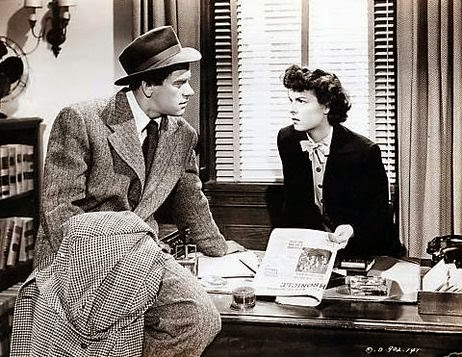An extraordinary look at adolescent life, Boyhood is an artistic achievement like no other; it is the coming-of-age story where we actually watch the main character come of age. Literally. Filmed over twelve years, filming only a handful of days each year, Richard Linklater creates the cinematic equivalent of a 12-year-long patchwork quilt, sewing raw, vibrant, moving moments together in the most creative and beautiful of ways.
Boyhood's lead character is Mason (Ellar Coltrane), a boy who lives with his sister Samantha (Lorelei Linklater, the director's own daughter) and his mother Olivia (Patricia Arquette). We watch as Mason grows before our very eyes; we watch Mason and his family pack-up and move all over Texas; we watch as various characters come in and out (and back in!) of Mason's life, each doing their part to change and mature the audience's developing surrogate and focus. And it's pure, artistic magic.
The transitions of the film are nothing short of marvellous; at each different age, we see another shade of Mason filled in, the boy turning into the young man. Each age leaves us satisfied and yet we know the story is never complete; we know this character is growing - and changing - before our eyes, never a rigid whole. There are so many distinctions between the ages, many subtle and understated, others prominent and marked, but never artificial. This is the absolute strength and power of the film; there is such a true sense of development and maturity established in both Mason and his world, and it is achieved in such a dense and layered way. Further, the changing nature of Mason's world is both fascinating but also strikingly relatable; drawing on our own world, we know exactly what Mason is witnessing. We lived through Harry Potter, we all loved our iPhones and Facebook; and yet, through these eyes, the experience is refreshingly new and unique.
Linklater strikes gold on so many levels here; his screenplay is lucid and luminous, simple and potent, creating a story that hits the spot in a multitude of ways. There are moments in this film that you can see coming a mile off, but he tells it in such a genuine and fresh way that it never feels tried or tiresome; there are other moments that are unexpected, but they are so fluid - never jarring - and just so well-crafted that you never question them. His direction is perfect; everything is assembled in a most exceptional way, such a raw, tender approach to the story that we've seen him bring so many times before, but this time polishing it back to its most pure form. His ensemble are fantastic; his daughter is hilarious, Coltrane gives a candid and legitimate performance and Ethan Hawke is kooky and hilarious but sincere and unaffected as Mason Senior, who we see drop frequently into his children's lives (one would suspect more often captured during the film's narrative than would be the case in real time). And yet the true genius on screen is Arquette, who is absolutely astonishing in her honest and moving portrayal as mother Olivia, and she takes her scenes to another level; it is the kind of performance that should have (and has had) awards thrown at it.
A fictional film like no other, Boyhood is one of the most overwhelmingly genuine, fresh and real cinematic experiences a viewer can have. It's a rare achievement in cinema, a film that truly captures the human condition in the most authentic and powerful of ways; it's a film that will have you laughing and one that can have you crying; I have little doubt you'll be doing both, sometimes even in the same breath.


.jpg)




